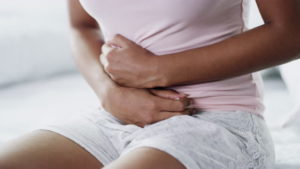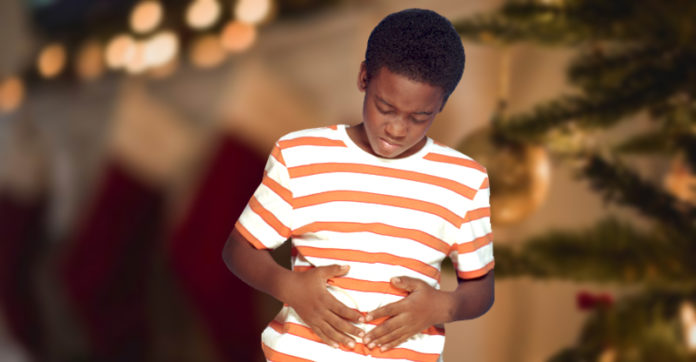Yuletide is here again! Notwithstanding the state of the economy, there will be more to eat and drink. Households will cook more than enough food to share to friends and neighbors, all in the spirit of the season. There will be inter-family visitations. Parents, with their children, would visit family friends while the older children galivant from one Christmas party to another. In the center of the euphoria is plenty food and drink. However, caution has to be taken in order to avoid food poison in children and older children.
Children enter frenzying moods during yuletide. There is new cloths, colorful decorations and gifts. The ambience of the environment with assorted fire crackers gives children fun and excitement. Young and older children eat and overeat, drink much more juicy fruits and other drinks until they fall victims of food poison.
Food poison in children and even in some careless adults are rampart during festivities. Though, initially, it may not be life threatening, but it may become complicated if necessary steps and actions are not taken. Food poison is messy enough to spoil the fun of the season.
It is almost inevitable not to have cases of food poison in children during festivities. Here is all you need to know about food poison especially in children and the care you need to give.
Food poisoning according to medical experts comes from eating food or drinking water tainted with bacteria, viruses, or parasites . Anyone can get food poison, but children have a higher chance because their immune systems aren’t as good at fighting off germs yet. Plus, they don’t have as much stomach acid, which not only breaks down foods but can also kill germs.

Symptoms
Medical practitioners say symptoms manifest from 30 minutes to 2 days after eating tainted food. The symptoms according to the experts vary based on the exact cause. The following are the common symptoms:
The main risk of food poisoning is loss of fluid in the body (dehydration), which can develop more quickly and become more severe in children.
Treatment for Your Child
Kids may show signs of any of the symptoms. As parents and care givers we must not panic, because sometimes the kids get better without treatment. You may however need to call your doctor for reassurance.
But if your kids can’t hold fluids down without throwing up or is showing signs of dehydration, medical experts say you need to take them to the hospital to get an IV. This helps replace the fluids he’s lost and restores the balance of electrolytes, the essential minerals such as sodium and potassium, which help with everything from keeping heartbeat normal to controlling how much water is in your body.
For severe food poisoning you may need antibiotics for the kids.
Dos & Don’ts in Treatment
Kids can get dehydrated more quickly than adults because they’re smaller. Parents and care givers main job is to keep the child drinking plenty of fluids, but avoid giving them milk, caffeine, and bubbly or fizzy drinks.
Don’t give food for the first few hours until the stomach settles down.
Don’t use medicine to stop the diarrhea. Doctors say its part of the body’s way of kicking the germs out. Anti-diarrhea medicine may make symptoms last even longer, and the side effects for kids can be serious
For infants,give small amounts of whatever your baby normally takes — breast milk or formula and electrolyte drink such as Pedialyte.
For older babies and children, give water, juice, or other flavored drinks mixed with water, and popsicles, ice chips or small sips.
When to seek medical help.
Medical experts say that parents and care givers need to call a doctor once the following signs of dehydration manifest in the child.
- Confusion
- Dry or sticky mouth
- Extreme thirst
- Eyes that look sunken in
- Little or no tears when crying
- No energy
- Not peeing much or at all
- Rapid heartbeat
- Soft spot on an infant’s head looks sunken in
- Weakness, dizziness, or feeling lightheaded
Apart from dehydration signs, experts advise parents to consult the doctors in the case of food poisoning in:
- Children younger than 5 years
- Children with ongoing health conditions, such as kidney problems
You need to consult doctor if your child hasn’t improved after 24 hours or they have any of these symptoms:
- Bloody throw-up or poop
- Blurry vision
- Diarrhea and a fever over 101 F
- Intense belly cramps that don’t go away after pooping
- Muscle weakness
- Problems breathing
- Throwing up for more than 12 hours
- Tingling in the arms
Preventing the spread of food poisoning to others
Some infections causing diarrhoea and sickness (vomiting) are very easily passed on from person to person. Medical experts recommend the following to prevent the spread of infection to others:
- Wash hands thoroughly after going to the toilet. Ideally, use liquid soap in warm running water but any soap is better than none. Dry properly after washing.
- Don’t share towels and flannels.
- Regularly clean the toilets that are used. Wipe the flush handle, toilet seat, bathroom taps, surfaces and door handles with hot water and detergent at least once a day. Keep a cloth just for cleaning the toilet (or use a disposable one each time).
- Stay off school until at least 48 hours after the last episode of diarrhoea or vomiting.
- Your child should avoid swim in swimming pool for two weeks after the last bout of diarrhea, if the cause of food poisoning is
As you gear up your preparation for xmas celebrations, make sure you don’t spread bacteria causing food poisoning around. As you go to market to buy raw food and meat/ poultry products, vegetables, tomatoes and peppers, ensure all is done with the highest standard of hygiene.
- Avoid food contamination:
- Store food correctly or at the correct temperature particularly meat and dairy products – for example, not refrigerating food. This is particularly a problem for meat and dairy products.
- Cook food Adequate cooking usually kills the bacteria.
- Follow food hygiene rules. Wash hands, boards, kitchen cutleries
- Don’t store raw meat in the fridge above food that is ready-to-eat to prevent raw meat juices to drip on to the food below.
Pasteurize milk and cheese. The pasteurization process kills the bacteria.




Enlighten and educating
Awesome